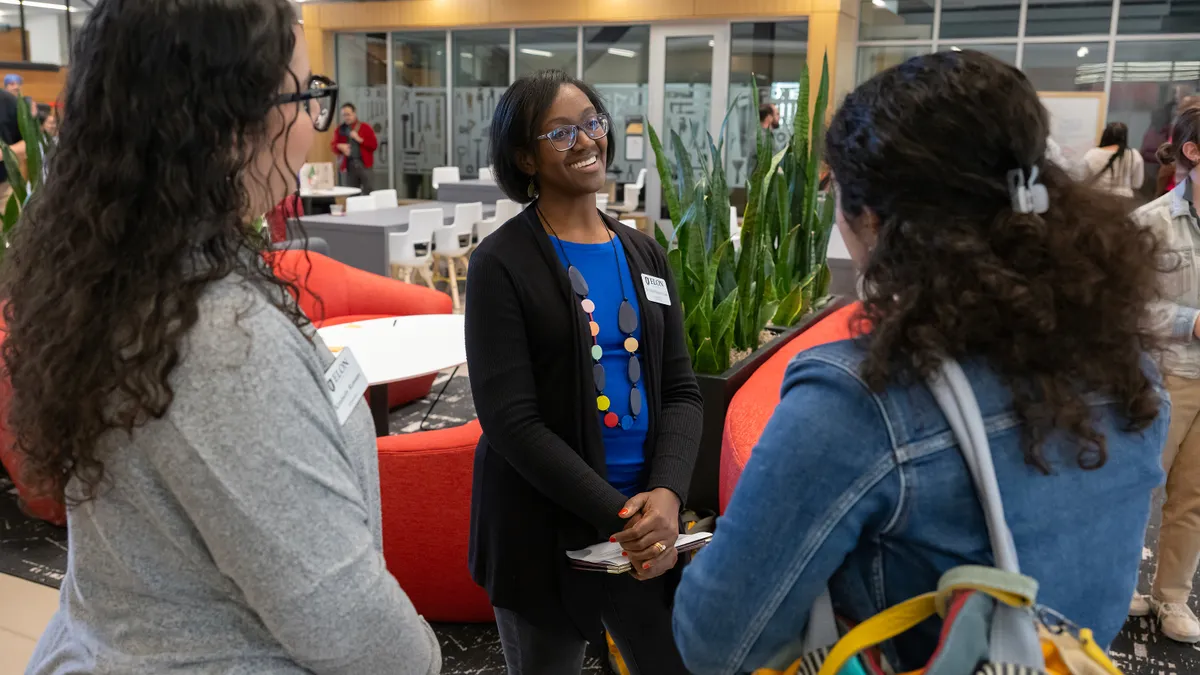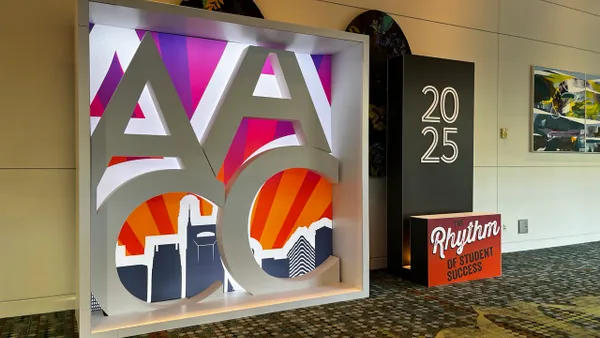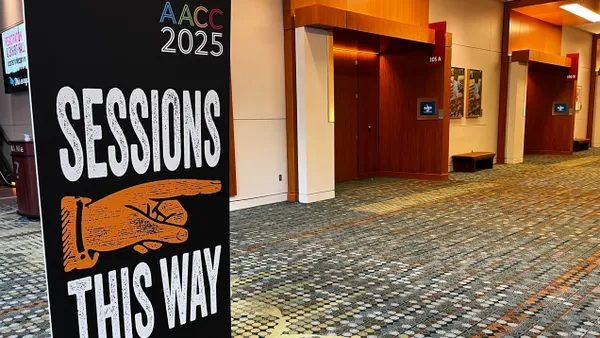Sirena Hargrove-Leak, Professor of Engineering at Elon University, understands firsthand the obstacles students can encounter in pursuing their education. Raised in rural North Carolina, she attended a high school with no honors or advanced classes, but gained confidence in her abilities with the critical encouragement of high school and college mentors.
Now, as a professor in Elon University’s engineering program, Hargrove-Leak focuses on helping her students reach their potential through a combination of engaged learning techniques and a blending of science and technology studies with the arts and humanities.
Below, Hargrove-Leak offers her thoughts on how engaged learning can support students in overcoming self-doubt and building the confidence needed to succeed in college and beyond – and how universities can support their faculty in these efforts.
Q: Can you share a little bit about the struggles you faced during your education journey?
I grew up in a time when there were doubts that someone who looks like me could pursue something beyond what was available in my home community. I consistently had to work hard to prove that I was capable. One of many examples is a doctoral advisor who told me, “some people here don't think you're going to make it." I was determined that they would not have the pleasure of seeing me give up. Ultimately, after completing a course with that advisor, he said that my work was of such quality, he could use it as the solution manual. My family valued education, so I drew on their lessons to push through numerous challenges and failures along the way. I am grateful for many others who believed in and encouraged me.
Q: How have those experiences impacted your own approach to teaching and meeting students where they are?
The challenges I faced gave me greater empathy and a clearer understanding that students come to us at different stages of development and with different degrees of preparation. I am careful not to pass judgment or make assumptions about students’ abilities, and I encourage them to leverage their strengths.
Q: What is engaged learning and how do you utilize it in your classroom? What value does it bring to students? And on the flip side, how do engaged learning techniques help teachers?
Engaged learning is active learning. Students are invited to be part of the learning experience and not passively consume information. I often use the flipped classroom approach, where class is led by students grappling with real-world challenges that are characteristic of the subjects we’re exploring and collaborating to solve them. I draw from entrepreneurial-mindset development, design thinking and leadership development. I believe students are better prepared to enter the real world as a result. There are many engaged-learning techniques, and I’ve found they keep teaching vibrant and innovative.
Q: What ideas have you seen work at universities that want enhance their support for faculty in their teaching efforts?
It is powerful when universities value the scholarship of teaching and learning as professional activity. Effective approaches allow faculty time and resources to pursue professional development opportunities and release time for more immersive experiences.
Q: Elon University is unique in that its engineering program was developed through the lens of the humanities. Can you speak to why the university opted to do this and how you’ve seen it set students apart from their peers as they pursue careers after graduation?
The breadth of study in the liberal arts makes our engineering majors more creative problem solvers, drawing on experiences, knowledge and skills gained in other academic areas. Their interactions and collaborations with students outside STEM programs also make them more effective communicators. These are highly valued professional skills.
I once discussed a hiring process with an employer who didn’t know I was affiliated with Elon’s engineering program. They described an Elon graduate as “head and shoulders above” other engineering candidates and said their interview proved that the student had excellent preparation to be an effective communicator, to solve problems creatively and to collaborate with others.
Q: What would you encourage other faculty to do to support students they feel are struggling to reach their full potential?
As an empath, I would encourage other faculty to teach from the heart, be observant of students and be slow to jump to conclusions. Find quiet moments to simply ask students how they are and invite them to share more about their experiences, then truly listen. Last, find ways to help students identify and articulate their “why.”
Elon University, a mid-sized private university in North Carolina ranked by U.S. News as the top university for undergraduate teaching, has made engaged learning a priority, equipping its educators with the tools, resources and time necessary to develop this approach to teaching as a pedagogical cornerstone. For more information on Engaged Learning techniques and best practices, please visit Elon’s Center for Engaged Learning.










